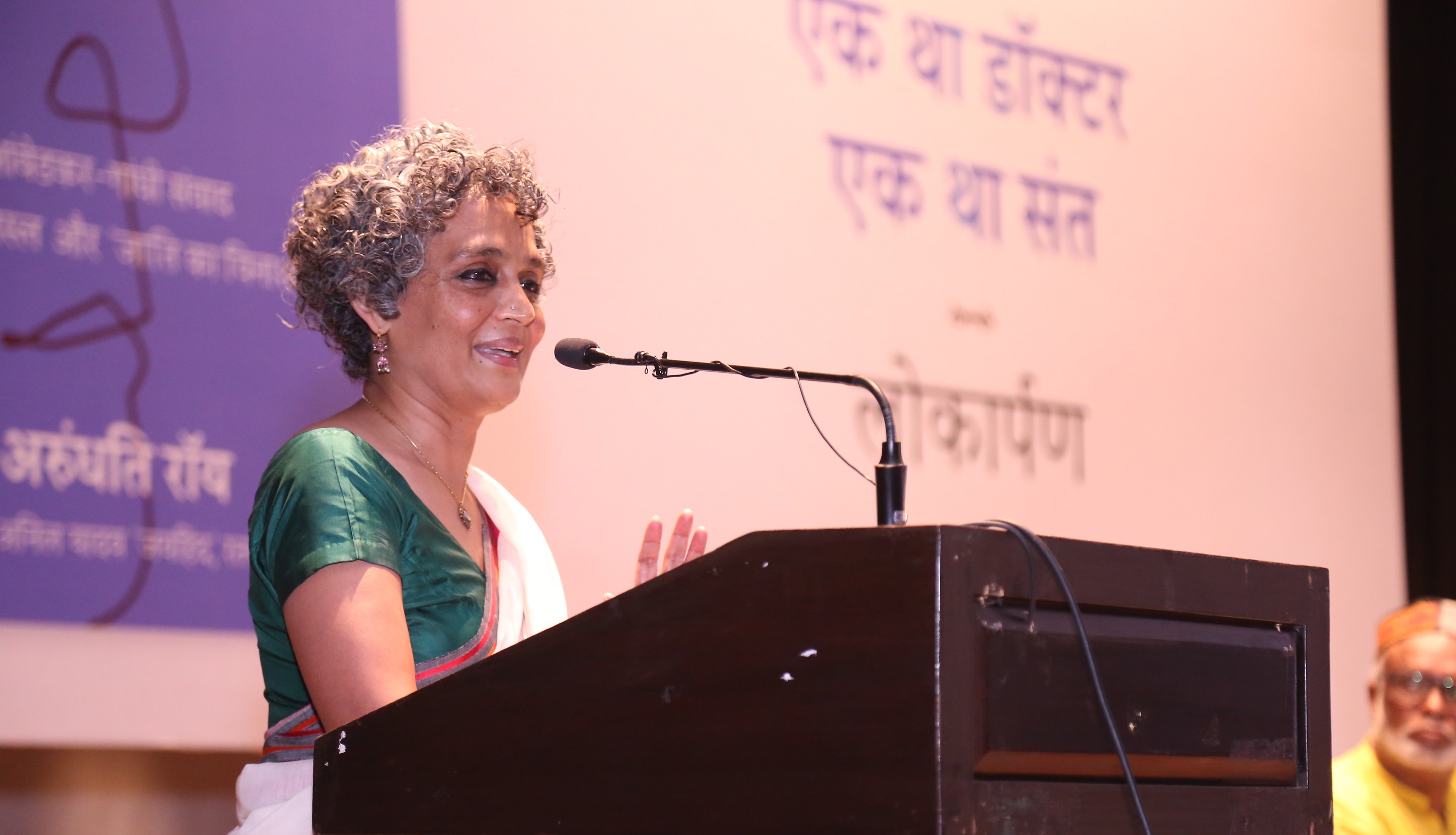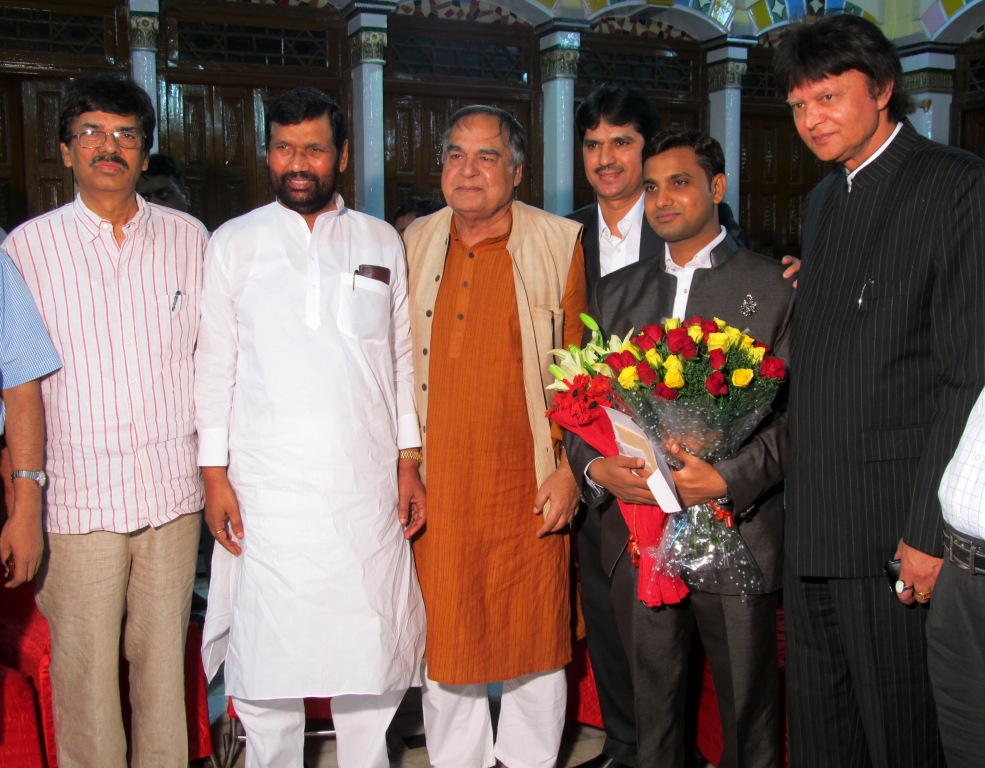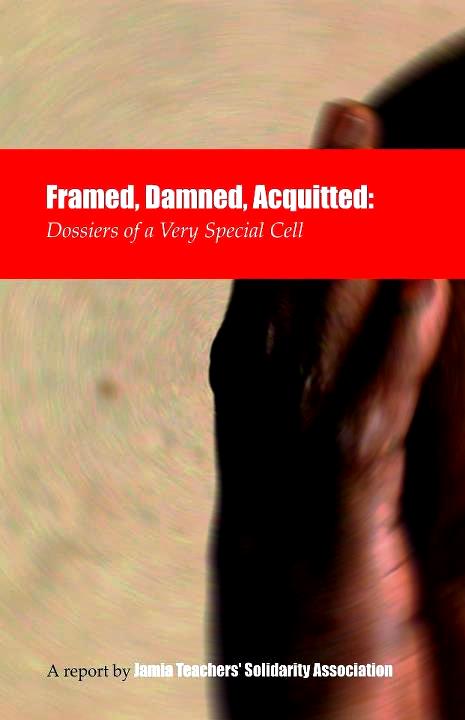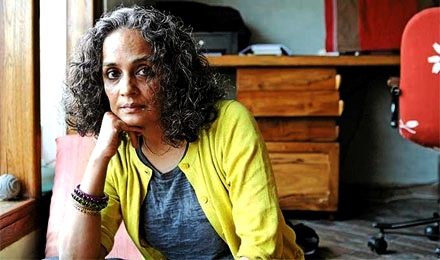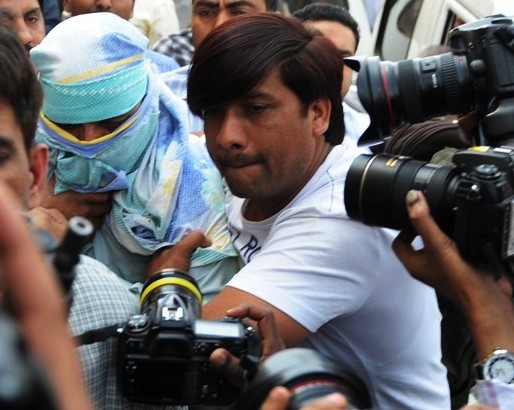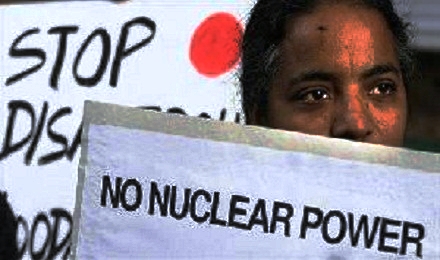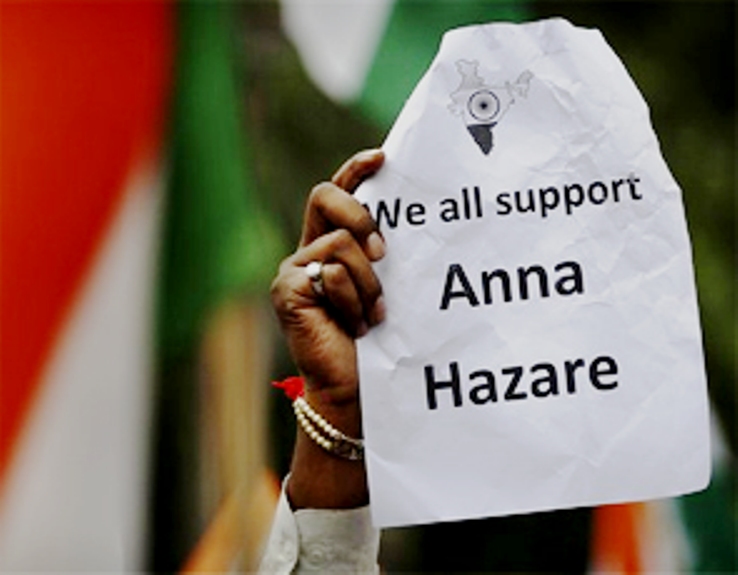Arundhati Roy’s book “Ek Tha Doctor, Ek Tha Sant” launched in the Capital
BeyondHeadlines News Desk New Delhi: Renowned writer Arundhati Roy's new book ‘Ek…
Hindi and Urdu translation of Arundhati Roy’s novel ‘The Ministry of Utmost Happiness’ launched in the Capital
BeyondHeadlines News Desk New Delhi: Arundhati Roy’s novel ‘The Ministry of Utmost…
एक ‘आतंकवादी’ का दावत-ए-वलीमा…
Afroz Alam Sahil for BeyondHeadlines जिस उम्र में नौजवान जिंदगी की रंगीनियों…
JTSA to Release Report on Delhi Police Special Cell
Rajinder Sachar, Arundhati Roy and ManiShankar Aiyar to Speak at the event... BeyondHeadlines News…
Egregious Injustice is a Disease
BeyondHeadlines News Desk (No one individual critic has taken on the Indian…
Activists and Intellectuals demand Immediate Release of Syed Mohd Kazmi
BeyondHeadlines News Desk Syed Mohammad Kazmi (50) has been arrested by Delhi…
Stop Harassing Koodankulam Activists
Coalition for Nuclear Disarmament and Peace (CNPD) and Indian Social Action Forum…
Jan Lokpal Bill Is Very Regressive: Arundhati Roy
Ibnlive.in.com In an exclusive interview, writer Arundhati Roy said there are…
School, Banks, Law Firms, Corporates Funding India Against Corruption
Afroz Alam Sahil, BeyondHeadlines New Delhi: Questions are being raised on the…

